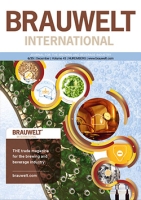Recent discussions have tried to define the specific meaning of “craft beer”. Generally “craft” describes an art, trade or occupation performed with skilled hands. The result of craftsmanship leads into an end product only specialised craftsmen (or women) are capable of producing. The use of the word “craft“ in the brewing community reflects the craft brewing movement which started in the U.S. with a diversification of the (beer-)market through an unprecedented boom of new, initially small brewery start-ups backed by a general trend of consumer awareness and their interest in often local and/or different from mainstream beers. So what is a UK craft brewery?
After the raise of their Chongqing-share from 27.9 to 60 percent in mid-December, Carlsberg announced at the turn of the year, that the Chongqing Beer Group has accepted their offer to acquire 100 percent of Chinese brewery group.
Although it seems daft to say that the new millennium heralded in a new era in the history of the brewing industry, it surely did. In 2000, while champagne producers were still counting their money and the rest of us recovered from all the worrying over the Y2K-bug, our world stopped being a globe. As we would soon see for ourselves, it had turned flat and shrunk from large to medium size. What went on in one far flung corner was suddenly registered everywhere else. The portents that globalisation of the brewing industry had entered its next and final stage – globality – were Interbrew’s launch on the UK brewers Bass and Whitbread.
Just because Michael Hollmann, 55, used to be CEO of one of Germany’s largest brewing groups Brau + Brunnen, which he sold to Radeberger Brewery in 2004, it does not mean that he has the wherewithal to run his own brewery. In mid-November 2013 his Iserlohn Brewery filed for bankruptcy, owing suppliers and banks an estimated EUR 2 million.
For the months January to October 2013, German brewers sold 2 percent less beer compared to the same period last year. Beer sales stood at 82.2 million hl. In October, beer exports declined too and registered -3.6 percent compared to October 2012. This adds to a loss of 3.1 percent for the January-October period. Beer mixes fared hardly better: sales declined 3 percent.
Master brewers, brewery engineers and brewing scientists have over some 350 years contributed to the development of science of botany, biochemistry, laboratory instruments, engineering and process technology in many ways, e.g. by technical improvements, adopting new machinery and new processes.
The African beer markets have been continuously growing over the past few years and have gained more significance within the global brewing industry. From the perspective of an enzyme supplier, strong regional diversity requires technical solutions and applications which go beyond common European brewing techniques – especially in terms of raw material availability and utilization. The following article gives insights into Novozymes’ contribution to support the growing beer markets in Africa.
“We will be the world’s beer company”, August Busch III, the President of Anheuser-Busch predicted in 1996. Twelve years later, Anheuser-Busch was no more. The “King of Beer” got taken over by a Brazilian-Belgian go-getter called InBev, which had only been formed four years previously. Was the Third’s retrospectively ill-judged prophecy a case of “pride goes before a fall”? Or had he not seen the writing on the wall, which spelt “do lunch or be lunch”? August III was an extremely competent corporate chieftain, which his son and successor August IV was not. Still, both Buschs proved blinkered. While they kept gazing at the U.S. from their executive suites in St Louis, the world of beer was changing beyond recognition. Those who took part in globalisation and its maddening frenzy of mergers and acquisitions survived. Those who only reluctantly did so – like Anheuser-Busch – became ultimate prey.
Who are these people who become engaged in local communities, who buy anything that’s locally produced from organic vegetables to artisan cheeses, and thus hope to support local businesses? Are they the much wooed LOHAS (Lifestyle of Health and Sustainability), Bobos (Bohemian Bourgeois), Best Agers, whose purchasing impact the ad men cannot stop puffing up? Besides, I wonder: is this small shift really what all the fuss is about and can brewers benefit from it?
When interviewing conventional beer drinkers about what they imagine that a brewery looks like, experts are frequently surprised at the romantic impression created by a brewery. Matters become even more interesting when asking the same customers about their opinion on the amount of energy required to produce one litre of beer or on the impact of the brewing process on the environment. Many customers have never given this a thought. And – unfortunately – neither have some brewers.


